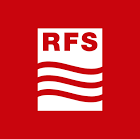Tower sharing – the key to 5G?
“The advent of 5G technology and competition between telecom operators to deliver high quality network experience provides a huge growth opportunity for Tower Companies.” This was the take of Bimal Dayal, CEO & MD of the world’s largest tower company, Indus Towers.
It’s a valid point - tower sharing offers a number of benefits for operators. From lower Total Cost of Ownership (TCO) to a more eco friendly business model as shared resources reduce both costs and carbon emissions. These are two of the top priorities as the telecoms industry enters the 5G era; it has to deliver the hugely increased capacity to make the network generation a success but without skyrocketing costs or environmental harm and tower sharing could be a key part of ensuring this.
With these and other potential benefits making tower sharing a hot topic for 2021, we catch up with our teams around the world to find out more about what tower sharing means for operators in different regions.
Rick Wei, Technical Sales Director (APAC) at RFS
China is one of the biggest markets for tower sharing and in the seven years since the establishment of China Tower, the share rate of new towers has increased from 14% to 80%. The company has also already reserved more than 10 million lampposts and other site resources with the idea that smart street furniture will form a key part of 5G infrastructure in China.
Combine this with research into new tower designs that focus on reducing cost of build and improving wind load tolerance to enhance tower shareability and it is clear that tower sharing is at the heart of China, and the wider regions plan to deliver a cost effective 5G roll out.
Marcos Wrobel, Channel Sales Manager EMEA at RFS
Tower sharing holds huge potential for operators. By teaming up with competitors through sharing the same tower, they can save 30-40% of the expense of building, running and maintaining networks. According to research from EY, greater outsourcing to independent Tower Companies could release an estimated €28b of capital, which MNOs can reinvest in their networks, such as to improve coverage and accelerate 5G rollouts. The market is already extremely mature in the US and developed in the last decade in Latin America and is taking off in Europe. The share of independent Tower Companies in Europe has increased from to 20% in 2020 from 13% in 2014 and is set to bring benefits for neutral hosts and operators alike.
Nader Famili, Head of Technical Solutions, North America at RFS
Tower sharing isn’t new to the North America market. In fact, it is a well-established approach in the cellular and broadcast industry, where RFS works has worked with American Tower on the spectrum repack and this proven approach is becoming more and more prevalent in telecoms. The roll out of 5G adds to the demand for infrastructure and tower sharing is, both globally and specifically in the US market, an excellent way for operators to manage costs and capacity without compromise. As a region with such an established history of success with the infrastructure sharing model, it is well placed to take advantage of this for 5G and it certainly what we expect to see over the coming months.
Renato França, Sales & Services Director – LATAM at RFS
The tower sharing business model has been present in the telco industry in LATAM for more than 10 years and is an approach that is gaining more and more traction as operators reap the benefits associated with shared infrastructure.
However, the draw back we find is that Tower Companies very often do not have the full knowledge internally to deliver 100% of the solutions that their customers expect. RFS therefore offers turnkey solutions including services to fill in the gaps and meet their customer needs. In LATAM, particularly in Brazil, all of the major Tower Companies are customers of RFS, using its turnkey solutions for indoor projects and small cell applications and we’re seeing increasing demand for this all across the region.
If you’re be interested to hear more about how RFS is helping operators and Tower Companies alike move towards a shared infrastructure model, get in touch with Paula Mennone, Global Product MarCom Manager.


